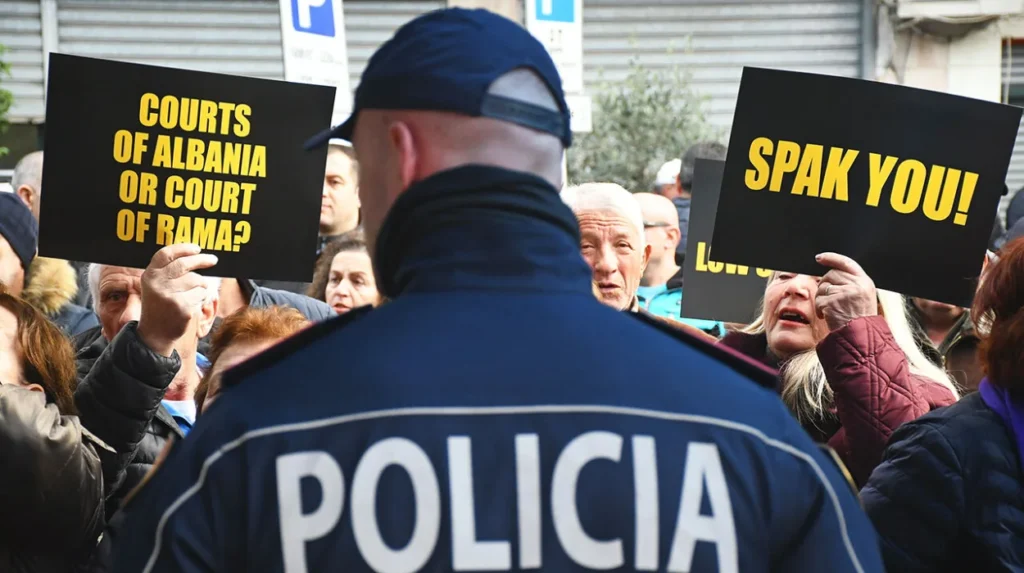Albania intensifies its anti-corruption drive backed by the European Union, targeting mayors and officials implicated in deep-rooted graft networks. However, accused officials are leveraging political influence and legal challenges to resist accountability, highlighting the complex battle between reform efforts and entrenched political power.
Albania’s Anti-Corruption Drive Gains Momentum
In a decisive move to tackle endemic corruption, Albania has escalated investigations and prosecutions targeting officials at various governmental levels. This initiative aligns with Albania’s broader ambition to join the European Union, which demands stringent anti-corruption measures as a precondition, according to The Washington Post’s coverage by John Hudson and Karla Adam. The efforts include scrutiny of mayors and other officials accused of corruption linked to rigging contracts and misuse of public funds.
Accused Officials Push Back Using Political and Legal Tools
As the crackdown intensifies, accused individuals have not remained passive. As reported by Hudson and Adam, many under investigation are fighting back by mobilising political influence and legal mechanisms to resist prosecution. This defensive stance underscores Albania’s ongoing struggle where political and judicial systems are often interlinked, complicating accountability efforts. Some accused officials are allegedly exploiting their positions to manipulate investigative processes and public perception.
EU’s Role and Conditionality in Albania’s Reforms
The European Union plays a pivotal role in pushing forward Albania’s reform agenda. Brussels has clearly signalled that progress in curbing corruption and enhancing rule of law is essential for the continuation of accession talks. The Washington Post report emphasises that EU conditionality remains a critical external driver motivating Albania’s anti-corruption campaign. However, there is recognition that political will inside Albania fluctuates and that vested interests often disrupt reform implementation.
Impact on Local Governance
The anti-corruption focus on mayors – some of the most powerful local figures – reveals the widespread nature of graft at the municipal level. This scrutiny challenges the traditional autonomy held by local officials who are often entrenched in patronage networks. The push against local corruption is seen as integral to creating transparent governance structures that meet EU standards. Yet, as noted, resistance from accused mayors indicates that these networks retain significant resilience.
Media and Independent Watchdog Reports
Supplementing the narrative, independent watchdogs and local media have published detailed reports documenting patterns of corruption and abuse of power. These sources give voice to citizens and civil society organisations demanding reform while also exposing efforts by corrupt officials to obstruct justice. This multiplicity of perspectives provides a comprehensive picture of Albania’s ongoing governance challenges.
Challenges Ahead for Albanian Justice System
The evolving situation highlights the complexities faced by Albania’s justice system, which must balance political pressures with the need for impartial prosecution. Recent cases illustrate difficulties in maintaining investigative independence and overcoming procedural hurdles deliberately introduced by those accused. Nevertheless, persistent judicial reforms and international support are gradually strengthening institutional capacities.
Public Perception and Political Consequences
The news coverage suggests that public opinion is increasingly polarized between support for anti-corruption reform and skepticism fueled by politicised resistance. The battle over corruption is not just legal but also public, influencing electoral politics and the legitimacy of governance. The outcomes of ongoing investigations and trials are perceived as tests of Albania’s democratic institutions and commitment to rule of law.
International Observers and Future Outlook
International observers, including the EU and specialised reform bodies, continue to monitor Albania’s progress closely. Their assessments will significantly affect the timeline and prospects for Albania’s EU membership. The Washington Post closing remarks highlight that Albania’s path to reform remains fraught but is crucial for its European aspirations.
This comprehensive report draws extensively upon detailed coverage by The Washington Post journalists John Hudson and Karla Adam, presenting an objective journalistic narrative on Albania’s complex anti-corruption efforts and resistance from accused officials in late 2025.







